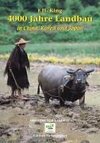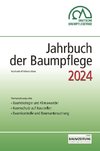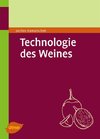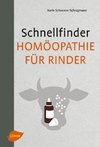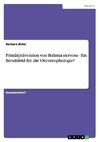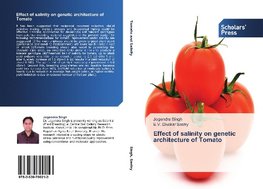
-
 Anglický jazyk
Anglický jazyk
Effect of salinity on genetic architecture of Tomato
Autor: Jogendra Singh
It has been suggested that reciprocal recurrent selection, diallel selective mating, multiple crosses and bi-parental mating could be effective breeding approaches for developing salt tolerant genotypes from potential breeding material suggested in the present... Viac o knihe
Na objednávku
73.98 €
bežná cena: 82.20 €
O knihe
It has been suggested that reciprocal recurrent selection, diallel selective mating, multiple crosses and bi-parental mating could be effective breeding approaches for developing salt tolerant genotypes from potential breeding material suggested in the present study. The following recommendations for tomato improvement under salinity are suggested: (i)The main emphasis should be given to good plant stand (germination and seedling establishment) with lower Na+/K+ ratio in root or shoot. (ii)Tomato breeding should also resort to pyramiding the characteristics since, no described traits alone is likely to produce a tolerant genotype. (iii)Threshold limit of salinity for tomato, up to which yield reduces very little or no reduction occur, is 2.5-3.0 dSm-1 and after it, every increase of 1.0 dSm-1 in EC results in a yield reduction of about 9-10%. The upper limit of salinity tomato crop improvement is 6.0 dSm-1. Beyond this, breeding programmes are not feasible because yield loss surpass than 50%. (iv)Yield reduction at moderate salinity is mainly due to reduction in average fruit weight (while, at higher salinity, yield reduction is due to reduced number of fruit per plant).
- Vydavateľstvo: Scholars' Press
- Rok vydania: 2013
- Formát: Paperback
- Rozmer: 220 x 150 mm
- Jazyk: Anglický jazyk
- ISBN: 9783639700213
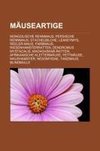
 Nemecký jazyk
Nemecký jazyk 